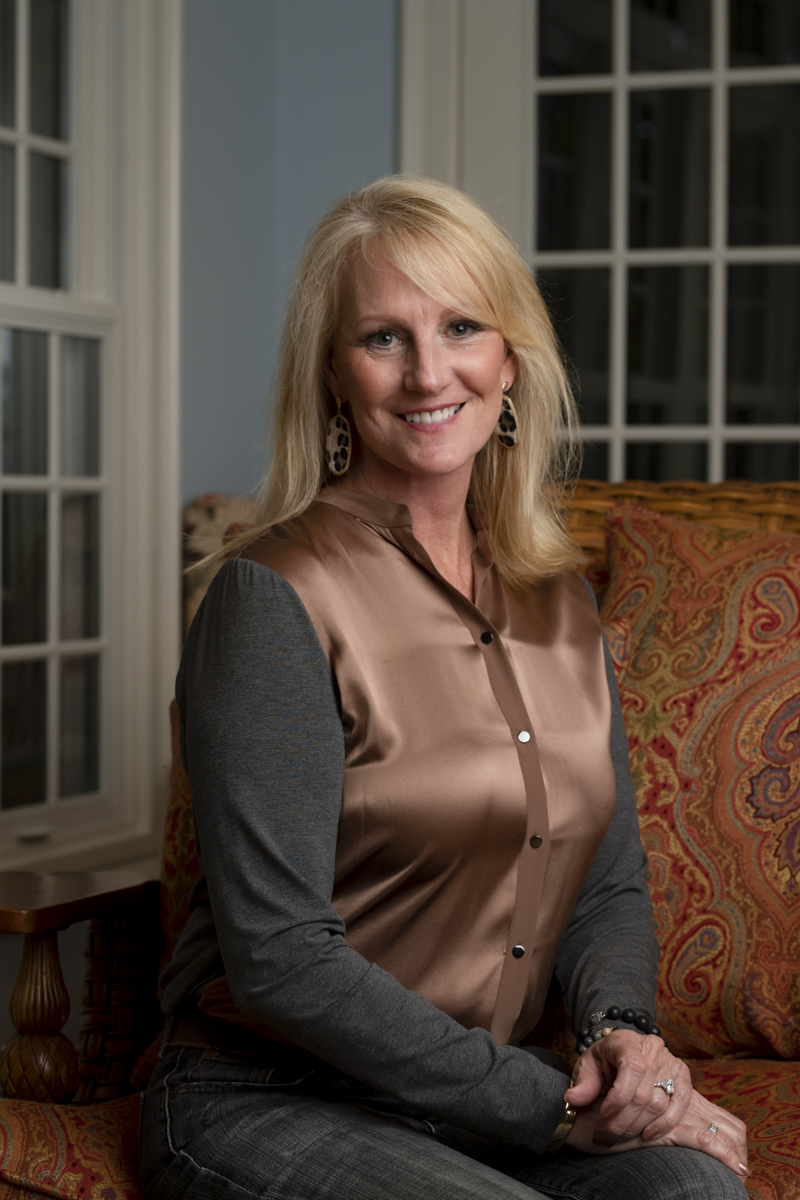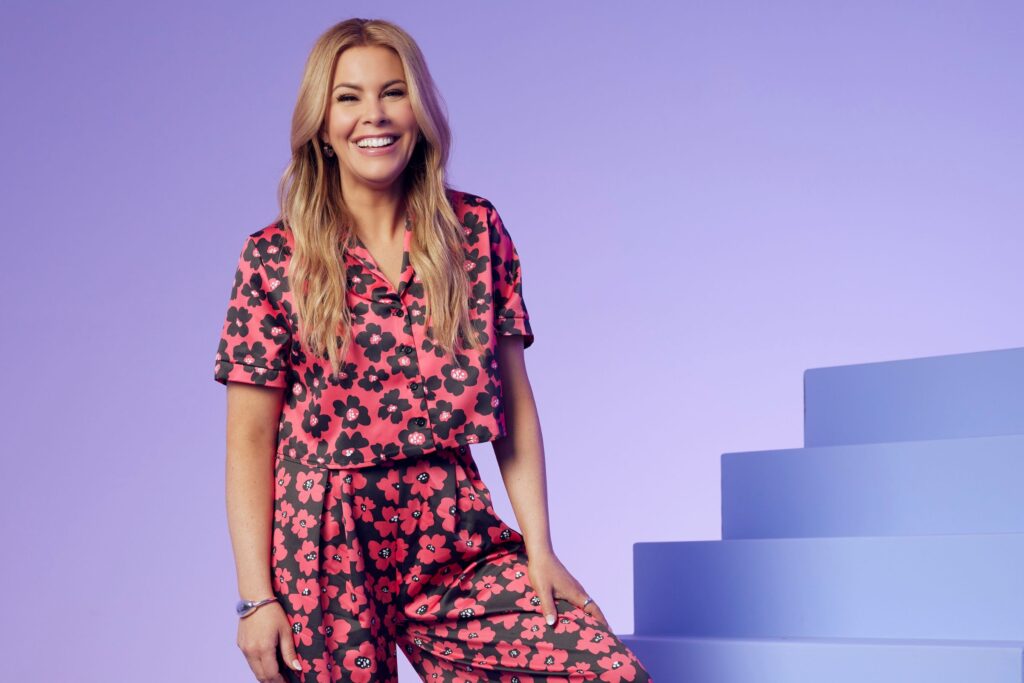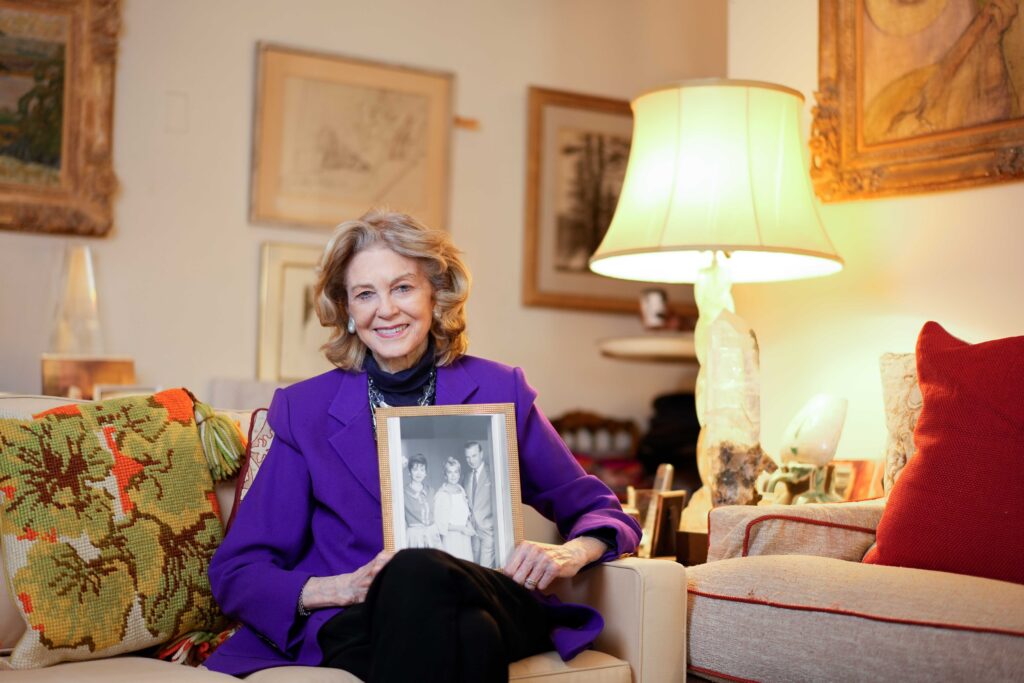In October of 2009, Linda Znachko heard a news story about a baby who had been abandoned in a dumpster. Like many, she found this story to be deeply troubling. She didn’t realize, though, that its effect on her would change the trajectory of her life. She made one call, and another, and then ultimately a series of calls. Her work to provide acknowledgment for every human life and to comfort “those who mourn” had begun.
Znachko’s resolve was that no baby should die without a name and proper burial. She established He Knows Your Name Ministries in Indiana and its website, HeKnowsYourName.org. Through the website, she has worked to ensure that every baby who dies under similar circumstances receives a name and that a celebration of life is held. Her book, “He Knows Your Name: How One Abandoned Baby Inspired Me to Say Yes to God,” was published in 2016. She explained that when she talked with a coroner and learned that there was no provision for babies who died in tragic circumstances to be acknowledged and respected, her life’s mission became clear.
Another service of Znachko’s nonprofit, Cuddle Cots, provides a unique gift to grieving families. 25,000 still births occur each year. Many hospitals are not prepared to serve the needs of these deceased babies’ families. Cuddle Cots are equipped with a cooling method that provides the gift of time to grieving families. The family can dress the baby, take footprints, take photographs, and just share the physical presence of the baby, for the longest time possible. “It’s my goal to lift the stigma of loss and help families grieve in a healthy way,” Znachko said. Cuddle Cots allow families to have the baby’s physical presence with them through much of the mother’s maternity stay. This facilitates closure and helps to set grieving families on the path toward recovery. The Bible says, “Blessed are those who mourn, for they will be comforted.”
Znachko worked with one mother who, under great stress, had taken the life of her own baby. Ultimately, Znachko made all of the arrangements for this baby boy and officiated his memorial service, allowing the broken-hearted family to honor him and begin the difficult path toward recovery. The mother has now committed herself, even while serving a 12-year prison sentence, to helping others prevent the tragedy that her baby and her family experienced.
National Safe Haven laws provide for parents to be able to deliver their babies to hospitals, and in some states to other places, too, like fire stations, with “no questions asked.” If the babies are not injured, the parents will not be prosecuted. These laws are unique to each state. Some states have a form for both parents to complete, primarily for medical purposes, but this form is optional. The National Safe Haven Alliance maintains a 24/7 Crisis Hotline at 1-888-510-BABY (2229). Their website is NationalSafeHavenAlliance.org.
Anonymity, to some degree, is provided by NSH laws for parents under stress. However, some parents, for whatever reasons, may need even more anonymity than they perceive in the NSH process, which calls for them to personally take their infants to a hospital or other facility to relinquish them. These parents in distress may need complete anonymity, in order to move forward in a constructive way.
The Safe Haven Baby Box program, shbb.org, tries to meet this occasional need for complete anonymity, for whatever reasons parents may have. With the SHBB program, distraught parents can take their newborn infants to a hospital or firehouse and place the babies into a completely anonymous “safe chamber,” allowing medical personnel to provide relatively immediate care.
The chamber provides a comfortable bassinet for the infant. It contains an alarm system that alerts personnel inside the establishment that a baby has been placed in the chamber—but to the parent and the infant, the alarm is silent. The safe chamber is checked daily by facility staff, as a double-check. Callers to SHBB’s Safe Haven Crisis Hotline also can be assured of complete anonymity, “if they desire it.” The number is 1-866-99BABY1 (992-2291).
Znachko sees the influence of “a higher power” in her work to partner with the Safe Haven Baby Box program. The complete anonymity that it provides may make the difference between life and death for a child whose parent is stressed to the point of considering infanticide. The SHBB program has achieved a strong success rate in Znachko’s home state of Indiana. Representatives of nonprofit organizations who share her commitment to preventing avoidable tragic infant deaths are now studying the program for possible implementation in their own states.
The successes of the Safe Haven Baby Box program have led to several states adopting it—Arkansas, Florida, Ohio, Oklahoma, New Mexico, Louisiana, and Pennsylvania. They have chosen to enhance National Safe Haven laws with the complete anonymity provided by the SHBB program.
“As we learned from the mother mentioned earlier, who killed her baby,” Znachko said, “if mothers at the height of their panic and distress know that they have a safe, reliable, and completely anonymous way to place their baby into the hands of those who will care for the child, without facing prosecution for making a heartbreaking decision, I believe it will be possible to save the lives of thousands of babies every year and also to spare these mothers lifelong pain and remorse.”
Znachko has found her collaboration with the Safe Haven Baby Box program to be particularly meaningful. She learned about SHBB through the death of a baby whose body was found by a hiker in December of 2014. When the news story aired, the baby was shown wearing a Vincennes University Aviation Department sweatshirt. Criminal investigators hoped that the sweatshirt might lead to someone coming forward to identify the parents. Znachko explained that when she saw the news report, she knew immediately that she would name the baby Amelia, for Amelia Earhart, because of the words on her shirt.
Monica Kelsey, founder of the Safe Haven Baby Box program, subsequently invited Znachko to testify before the Indiana Senate and House of Representatives. “I wanted to help them understand that abandoned babies are far more than mere statistics or numbers. They’re human beings,” Znachko said. She showed the senators and representatives Amelia’s footprint. “You may not have expected to have anything in common with an abandoned baby,” she told them, “but you do—because you have a footprint, and so does she.” Kelsey observed the impact of this message on the legislators. They subsequently voted to enhance National Safe Haven laws by incorporating the SHBB completely-anonymous-surrender service into Indiana’s protection for infants. Kelsey subsequently incorporated baby Amelia’s footprint into the SHBB logo.
Znachko and her husband, Steve, have five children, four of whom are adults. In 2020, Znachko’s work for babies in tragic circumstances took a personal turn. She heard from an adoption attorney who was looking for adoptive parents for a baby girl who was critically ill. Once the attorney realized that the baby wouldn’t be adoptable because she had extensive brain damage and was expected to die, he phoned Znachko to inquire if she would take care of the child. She thought he meant taking care of the baby’s final arrangements in the way that she usually does, but the attorney explained that he was asking for more than this. He was asking her to become the baby’s legal guardian, for as long as she survived. Znachko stepped up.
After learning the physician’s recommendation that the baby be taken off of life support, Znachko agreed to allow that to be done, but she wanted to spend time with her first. She said that Neonatal Intensive Care Unit staff give babies who will be adopted the description “BUFA,” meaning “baby up for adoption.” Originally, the attorney had thought that she might be adoptable, so Znachko realized that the baby girl had never been named. She told NICU staff that the baby’s name was “Abigail,” and that she should be called this, and that she wanted Abigail to be dressed in a sleeper, rather than only a diaper. The next day, Znachko and her husband went to the NICU to be with Abigail as the medical staff took her off of life support. Znachko and her husband spent the day with her.
When life support was removed, they were told that Abigail probably would live about two minutes, but she lived for two hours, Znachko reported. Her birth and death certificates have Znachko’s last name. Znachko’s four children chose the name Elise as Abigail’s middle name. “Abigail” means “a father’s joy,” and “Elise” means “beloved.” Posthumously, Znachko and her husband became Abigail’s adoptive parents.
Znachko said that she and Steve dressed Abigail in a beautiful white dress, prayed over her, baptized her, and anointed her with oil.
Znachko’s work began with the simple desire to honor babies who had died and to comfort those who mourn. But her He Knows Your Name Ministries has become an organization that now works to protect and preserve every precious human life. To safeguard each life—with the hope that the work to comfort family members of lost babies in situations like these will ultimately no longer be needed.
Christine Colbert holds a master’s degree in journalism. She has written for and edited varied media. Her preferred “beat” is good news.













